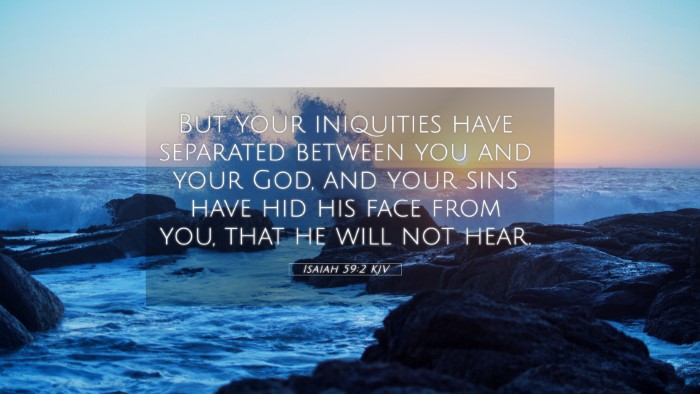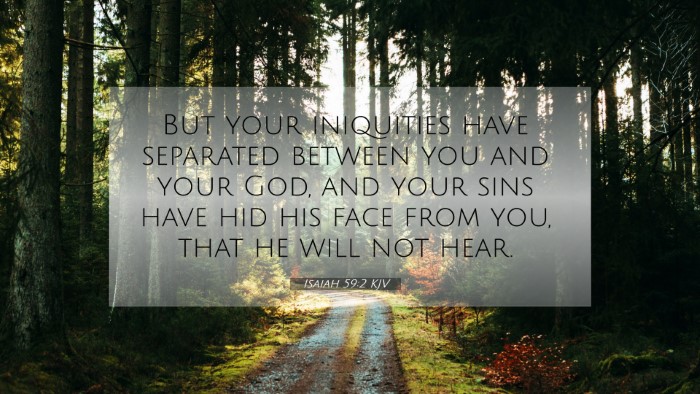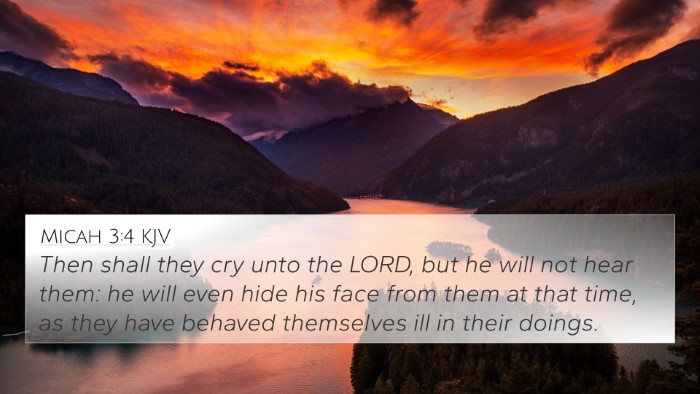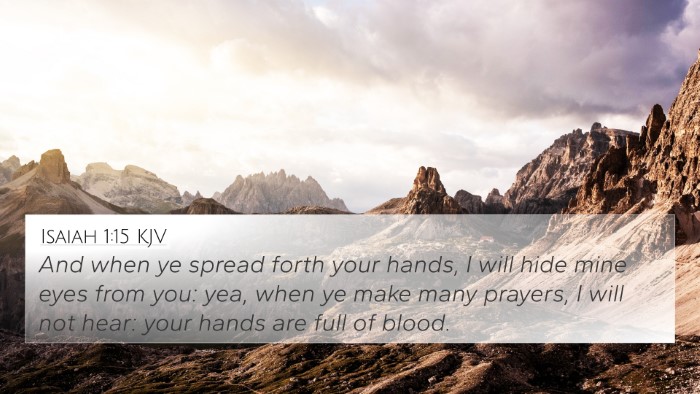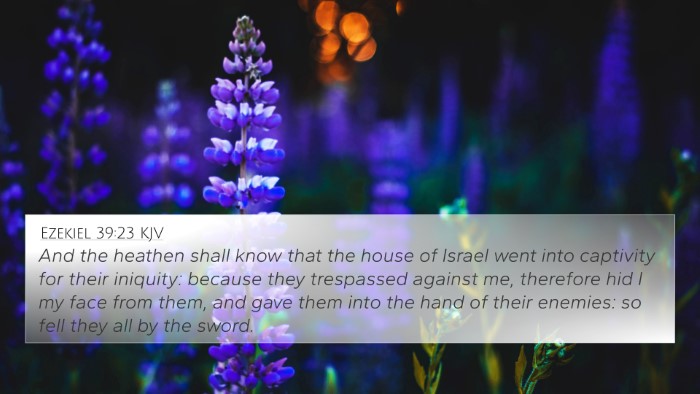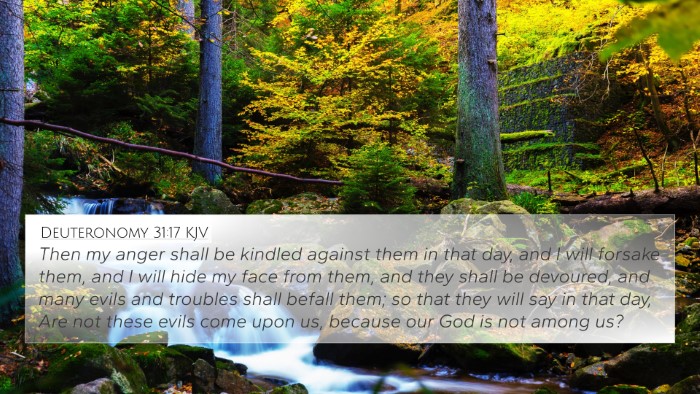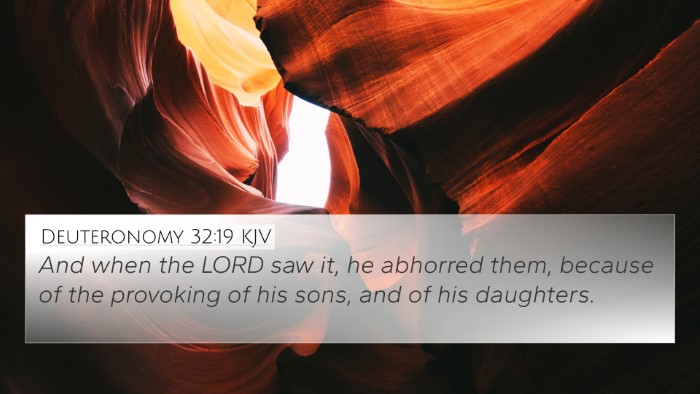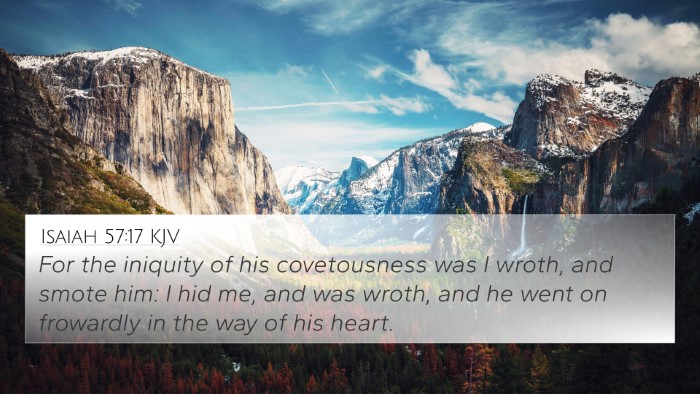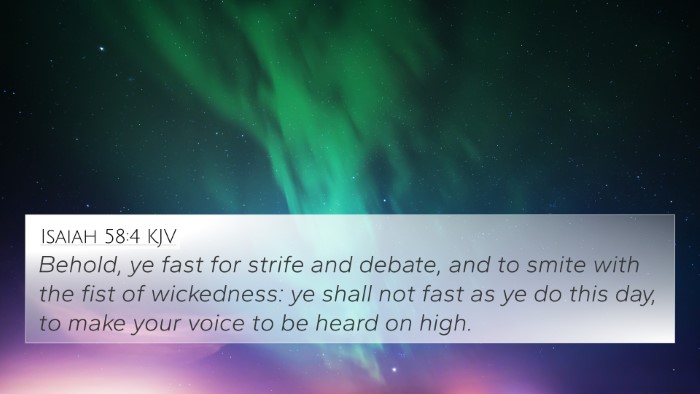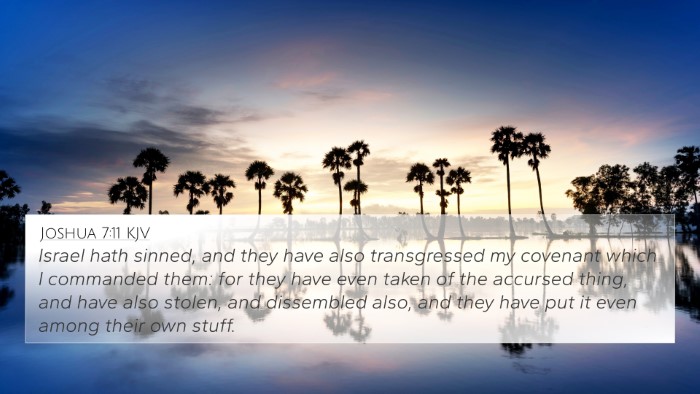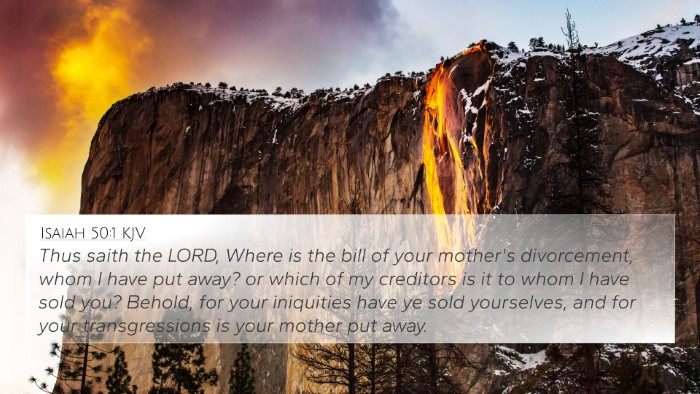Understanding Isaiah 59:2
Isaiah 59:2 reads as follows:
"But your iniquities have separated between you and your God, and your sins have hid his face from you, that he will not hear."
This verse serves as a powerful reminder of the impact of sin on the relationship between humanity and God. It highlights the divide created by iniquities and emphasizes the consequences of sinful actions. Below is a summary of insights from public domain commentaries that elucidate its meaning.
Summary of Insights
Separation from God: Both Matthew Henry and Albert Barnes emphasize that sin creates a barrier in our relationship with God. Henry underscores that it is our own iniquities that cause God to withdraw His presence from us, leading to a spiritual separation.
The Hiding of God's Face: Adam Clarke points out that the metaphor of God's face being hidden signifies a lack of divine favor and the refusal of divine assistance. This withdrawal is directly correlated with the sinfulness of humanity, which leads to a disconnection from God's grace.
Repentance as a Remedy: Both Barnes and Henry stress the need for repentance. They assert that acknowledging our sins and seeking God's forgiveness is the way to restore the broken relationship. Without this genuine repentance, one remains distanced from God.
Thematic Connections to Other Scriptures
Isaiah 59:2 intuits deep biblical themes that are echoed throughout Scripture. Here are some key cross-references:
- Psalm 66:18: "If I regard iniquity in my heart, the Lord will not hear me." This verse reinforces the theme of sin hindering prayers.
- James 4:8: "Draw near to God, and He will draw near to you." Here, humility and turning from sin lead to restoration with God.
- Isaiah 1:15: "And when you spread forth your hands, I will hide mine eyes from you." This directly connects to the concept of God turning away due to sin.
- Meditations on John 9:31: "We know that God does not listen to sinners. He listens to the godly person who does His will." This reinforces the necessity of righteousness in approaching God.
- Proverbs 15:29: "The Lord is far from the wicked, but He hears the prayer of the righteous." Again, sin separates us from God's presence.
- 1 John 1:8-9: "If we say we have no sin, we deceive ourselves... If we confess our sins, He is faithful and just to forgive us." This offers hope against the backdrop of Isaiah 59:2.
- Matthew 5:8: "Blessed are the pure in heart, for they shall see God." This speaks to the necessity of purity to approach God.
- Colossians 3:25: "Anyone who does wrong will be repaid for his wrongs." This underscores God's justice regarding sin.
- Micah 3:4: "Then they will cry out to the Lord, but He will not answer them." A stark reminder of the absence of God due to unrepentant sin.
- Romans 3:23: "For all have sinned and fall short of the glory of God." This universal declaration aligns with the nature of sin described in Isaiah 59:2.
Application and Reflection
Understanding Isaiah 59:2 calls for personal introspection about our lives and actions. It invites believers to evaluate their spiritual status and consider any barriers that sin may have erected between themselves and God. A genuine desire to seek pardon and to return to a righteous path can renew one’s relationship with the Creator.
Resources for Study
To further explore topics related to Isaiah 59:2 and improve your biblical understanding, consider utilizing:
- Bible Concordance: Look up verses related to sin and separation, helping to identify key scriptures.
- Bible Cross-reference Guide: Use this tool to find and follow themes across different scriptures for deeper insights.
- Cross-reference Bible Study Method: Engage with the interconnectedness of biblical texts for thematic understanding.
- Bible Chain References: A method of studying scriptures that focuses on a sequence of related verses.
- Comprehensive Bible Cross-reference Materials: Resources that collate multiple answers regarding scriptural connections.
Conclusion
Isaiah 59:2 serves as both a warning and an invitation. It reveals the devastating impact of sin while simultaneously offering the path of repentance for restoration. By engaging with the broader biblical context and utilizing cross-referencing tools, believers can deepen their understanding of this critical scriptural passage.

